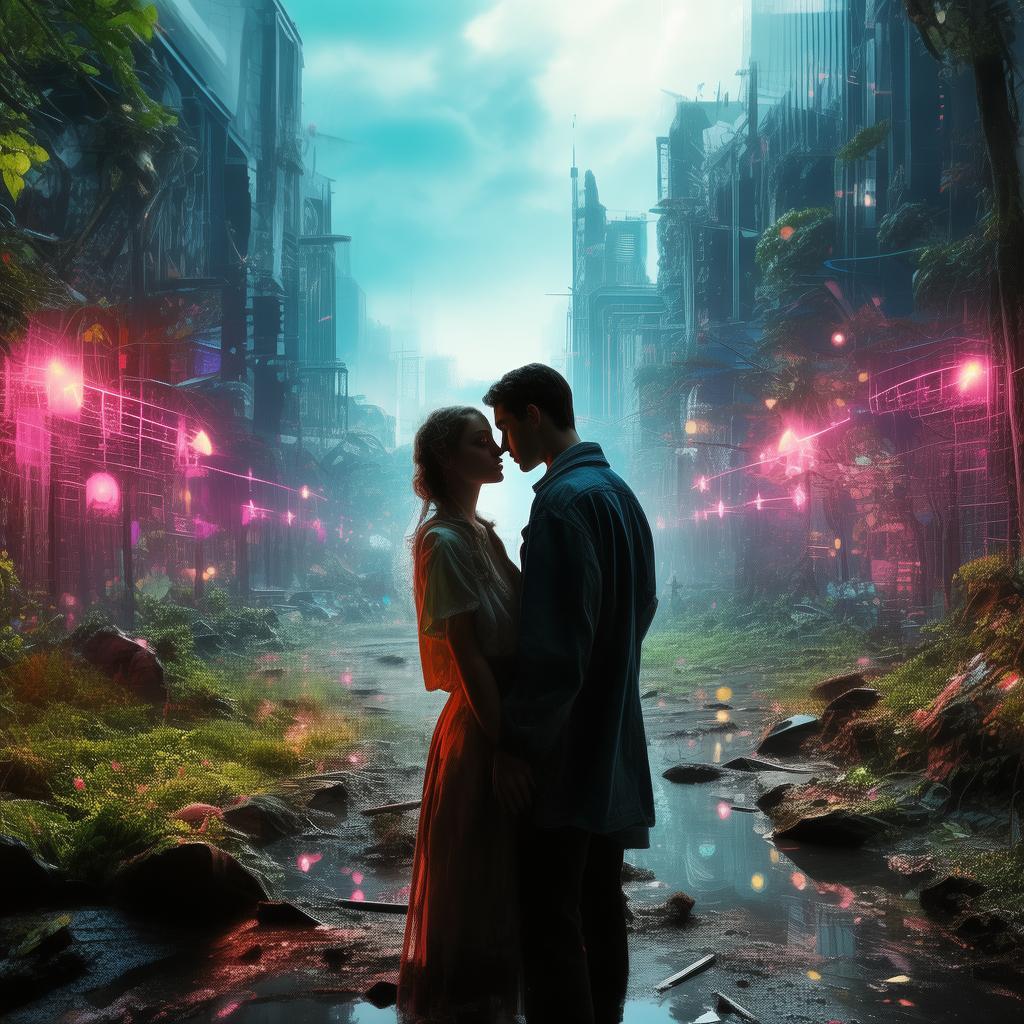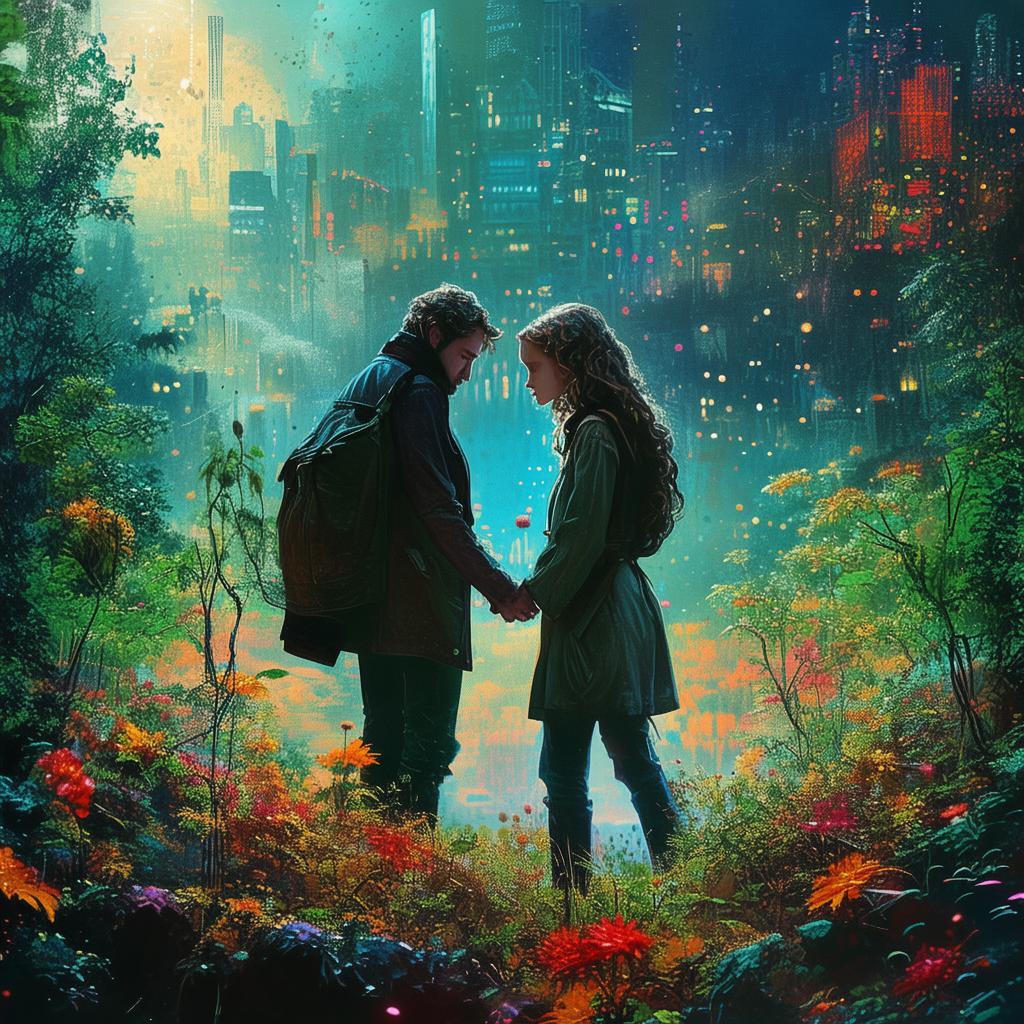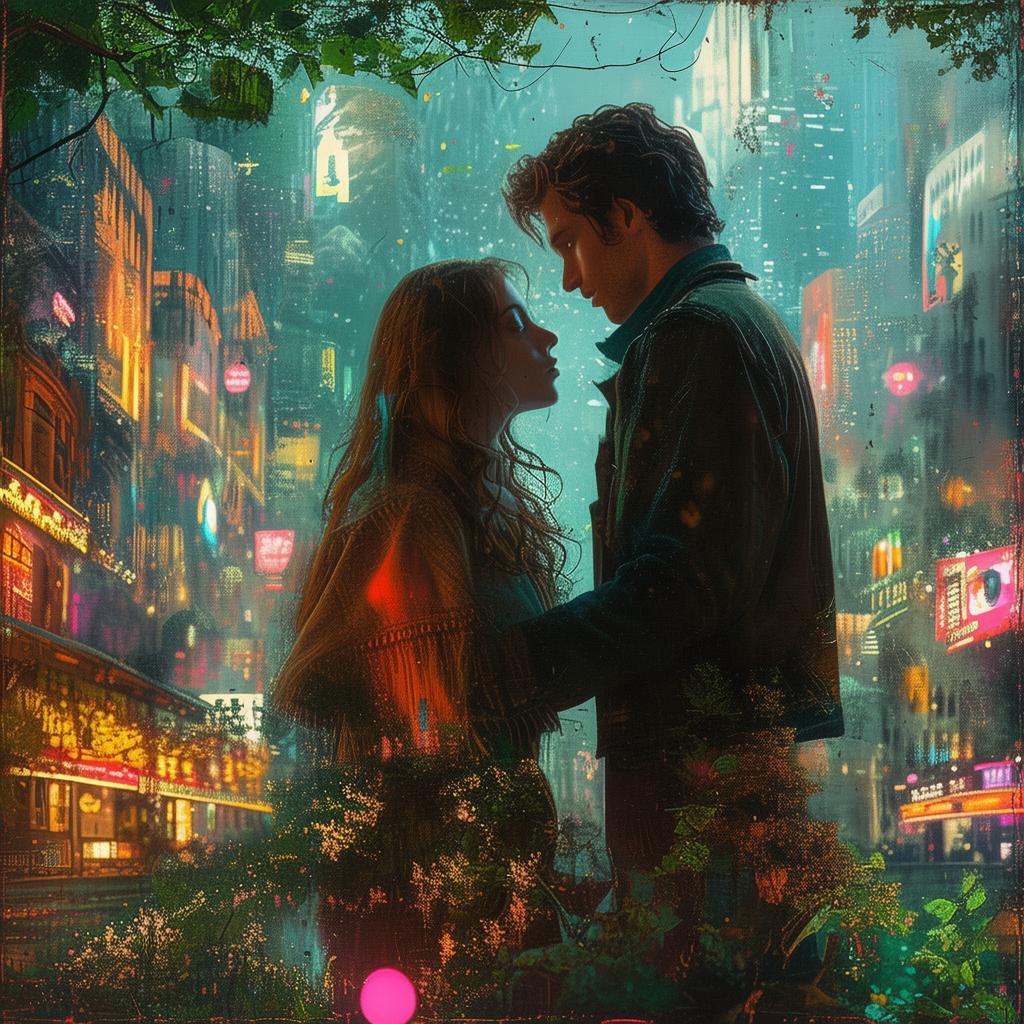Whispers of the Bard: A Tale of Forbidden Passion
In the heart of Renaissance London, where the air was thick with the scent of roses and the sound of music, a love triangle as timeless as the Bard's own plays was brewing. The stage was set in the opulent court of Queen Elizabeth I, where the most brilliant minds and the most passionate hearts converged.
William Shakespeare, the playwright whose name would echo through the ages, was a man of many talents and even more desires. His heart was divided between two women, each more captivating than the last. The first was Anne Hathaway, a woman of strong character and a love for the stage that matched his own. The second was the enigmatic Viola de Lesseps, a courtesan whose beauty and wit were the talk of the town.
The story began with a performance of Shakespeare's latest tragedy, "Romeo and Juliet." As the curtain fell, the emotions of the audience were still raw, and the stagehands could see the tension between the two women. Anne, with her gentle eyes and soft voice, had always been Shakespeare's muse, but Viola's presence was like a storm, a tempest of passion that threatened to upend the delicate balance of their relationship.
Viola, with her dark, mysterious allure, had caught Shakespeare's eye during a performance of "The Taming of the Shrew." Her performance was so intense, so passionate, that it left an indelible mark on his heart. Despite her reputation as a courtesan, Viola was a woman of deep intellect and a soul that yearned for something more than the fleeting pleasures of the flesh.

As the nights grew longer and the air grew colder, Shakespeare found himself drawn to Viola more and more. Their conversations, filled with wit and passion, were like a drug, an intoxicating blend of intellect and desire. Anne, sensing the shift in her husband's affections, became increasingly jealous and desperate, her love for Shakespeare twisted into a dangerous obsession.
One fateful night, Shakespeare found himself alone with Viola in the garden behind the theatre. The stars above them were a silent witness to the words they exchanged, a testament to the intensity of their feelings. "You are the storm in my calm, the darkness in my light," Shakespeare whispered, his voice filled with a yearning that was almost palpable.
Viola, her heart pounding with a mix of fear and excitement, replied, "And you are the light in my darkness, the calm in my storm." The air between them was charged with electricity, a testament to the power of their attraction.
But as the night wore on, the shadows of the past began to creep in. Viola's past as a courtesan cast a long, dark shadow over their relationship, and Shakespeare's love for Anne, the mother of his children, loomed large. The triangle of love became a triangle of betrayal, as each woman struggled to hold onto Shakespeare's affection.
Anne, in her desperation, resorted to drastic measures. She sought to control Shakespeare's heart through jealousy and fear, but her actions only pushed him further away. Viola, on the other hand, was a woman of principle and honor. She knew that her love for Shakespeare could never be pure, that the shadow of her past would always hang over them.
As the story reached its climax, Shakespeare found himself at a crossroads. He realized that his love for Viola was real, but it was a love that could never be consummated. The triangle of love had become a triangle of fate, and Shakespeare knew that he had to make a choice that would not only affect his own life but also the lives of those around him.
In a final act of courage, Shakespeare chose to honor his marriage to Anne, despite the pain it caused him. He knew that his love for Viola was a dangerous passion, one that could destroy everything he held dear. With a heavy heart, he turned away from Viola, leaving her to face the consequences of her own desires.
The ending of their story was bittersweet. Viola, heartbroken but dignified, returned to her life as a courtesan, her love for Shakespeare a secret that she carried with her always. Shakespeare, in turn, continued to write his plays, his heart forever entwined with the love he had for both women.
The tale of Shakespeare's love triangle was one that would be whispered in the halls of history, a story of passion, betrayal, and the enduring power of love. It was a story that would remind all who heard it that love, like the Bard's plays, was a complex tapestry of emotions, woven with threads of joy, sorrow, and the eternal quest for connection.
✨ Original Statement ✨
All articles published on this website (including but not limited to text, images, videos, and other content) are original or authorized for reposting and are protected by relevant laws. Without the explicit written permission of this website, no individual or organization may copy, modify, repost, or use the content for commercial purposes.
If you need to quote or cooperate, please contact this site for authorization. We reserve the right to pursue legal responsibility for any unauthorized use.
Hereby declared.







